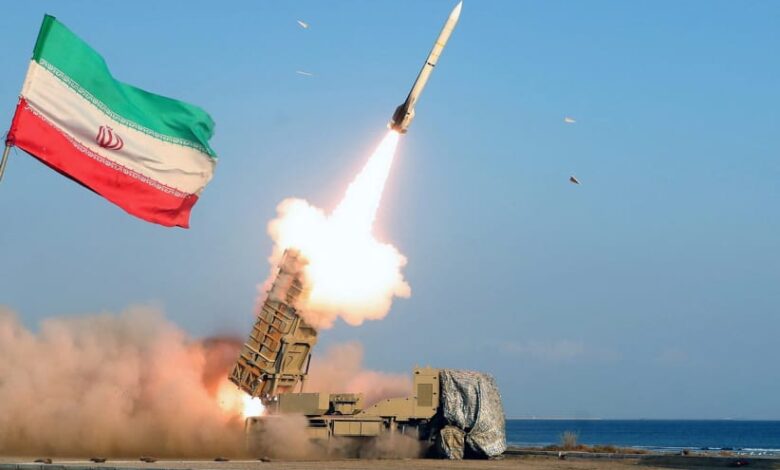
On the evening of October 5, 2024, a moderate earthquake measuring 4.6 on the Richter scale shook the Iranian province Semnan near Aradan. The epicenter was reportedly at a shallow depth of about 10 km from which the quake tremors could be felt in Tehran, about 110 km away from the source. Shortly thereafter, a smaller earthquake was reported in Israel, which made many wonder about the strange coincidence of these seismic events.
Earthquake Overview
Earthquake happened in Iran region where there are countless fault lines causing regularity in the occurrence of earthquakes. Iran has experienced many significant earthquakes over time, and with its geography, earthquake without serious damage from this one was possible. Even though it may be that the magnitude and depth of this earthquake are unusual, these do not necessarily signify a nuclear explosion.
Underground nuclear tests may even cause a small earthquake but will not draw in any easy conclusions for an isolated interpretation as the specifics of the tremor do not make it so. This being shallow and modest cannot be anything like what is expected in an underground nuclear detonation.
Experts appear to be able to claim that while underground explosions could generate seismic waves, it is quite a complex undertaking in itself to maintain containment without blow-through to the surface especially if done at such shallow depths.
Some Speculation and Concerns:
Hence, with this historical background and geopolitically significant tussle between Iran and Israel, it was in the cycle of mass speculation of a covert nuclear test theory flooding the social media space. Several users reasoned that the nature of these earthquakes probably means Iran is testing an underground nuclear option, theoretically built to cause the least possible surface disruption, radiation exposure, and then probable worldwide fallout.
Iran’s gone nuclear since last night, posted another. They exploded test bombs 10 km under the ground near Semnan to reduce the radiation that the event would produce. Another reads, “That Iranian earthquake really spooked Israel. They’re blubbering on if they’ll attack Iran. Looks like the secret is having nukes. No country will mess with a nuclear power.
Though such theories are an after-effect of entrenched fears over Iran’s nuclear intentions, they encapsulate the hardness in equating seismic activities with nuclear-related activities when nothing concrete comes up to prove them so. On this score, the Iranian government has never contradicted the notion that it has no interests in nuclear warfare plans but insists that its interests lie in peaceful nuclear pursuits; however, the international community is still to believe such claims and keep quiet.
Geopolitical Context
This is one of the most tension-ripped relations between Iran and Israel, with mutual distrust and antagonism spanning decades. Iran’s advancing nuclear capabilities directly threaten the national security of Israel. The recent military exchanges and missile exchanges, especially after Iran launched some 400 missiles into Israel on October 1, have added fuel to these fears.
Israel has also been involved in cyberattacks and bombings of Iran’s nuclear facilities with an aim of depriving Iran the opportunity to announce its capability to produce the nuclear bomb. The impacts of the nuclear-armed Iran are not limited to the pocket of Israel but it will also avail benefits to other countries in the region of the Middle East.
Humanitarian Issues
Matters are not being made any easier by the ongoing conflict in the region. Matters have gotten seriously bad in the humanitarian situation in Gaza since Hamas launched a surprise attack on southern Israel on 7th October 2023. Military Israeli operations have killed over 42,000 Palestinians, caused wide-scale displacement, and dire cries for international humanitarian aid and ceasefires.
The humanitarian cost is heavy, but still, the Israeli government is unlikely to retreat its military operations with assistance from the United States, which makes the situation more complex on the geopolitical level. This conflict does not just have regional after-effects; it is actually an international issue because waves come in global politics and security views.
These events will probably be investigated to trace their source and to see if they are related to any nuclear tests. These seismic activities bring into sharp focus the manner in which geologic activity can overlap with political upheaval leading to relooking at regional security dynamics and the fears of nuclear proliferation.
While speculation may abound as to whether or not Iran has indeed been conducting secret nuclear testing, it’s critical the community instead focus on geological data and expert analysis, coming to understand the actual nature of such eventualities. Under circumstances that may have serious implications for regional stability and security, the tensions between Iran and Israel remain a tangled and shaky development. The international community stays vigilant and keeps itself posted.




